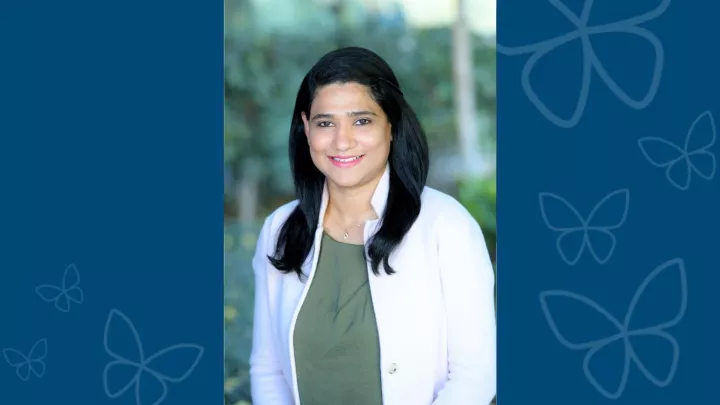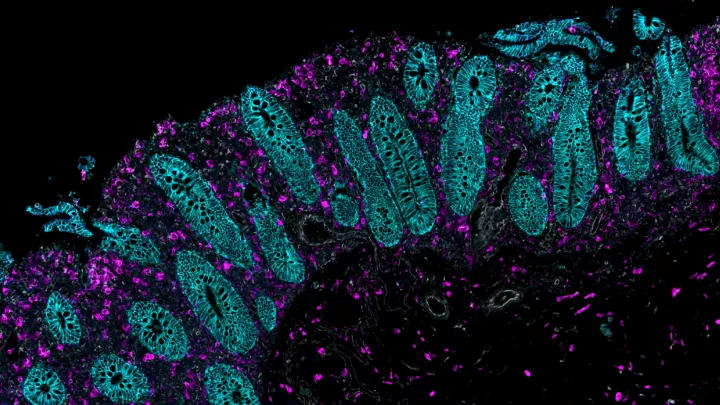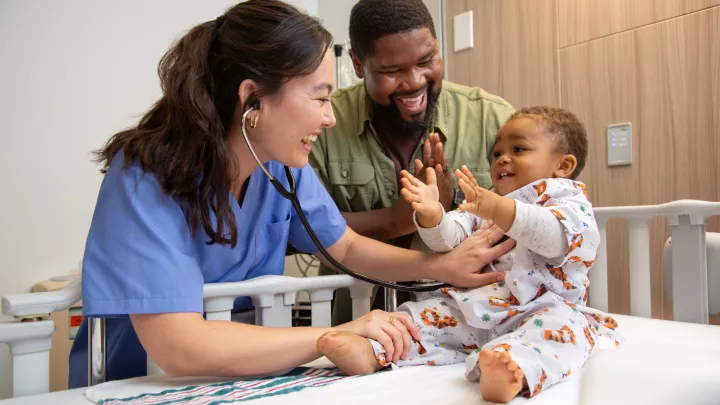Celiac and Gluten Resources and Treatment (GREAT) Clinic
The Celiac and Gluten REsources And Treatment (GREAT) Clinic at CHLA provides comprehensive care for pediatric patients with celiac disease, wheat allergy and non-celiac gluten sensitivity/wheat intolerance syndrome. In all of these conditions, children experience gastrointestinal and other symptoms with exposure to wheat.
Celiac disease (CD) is an autoimmune disease triggered by the ingestion of gluten proteins found in wheat, rye and barley. It occurs in genetically susceptible individuals and often runs in families. Symptoms include diarrhea, constipation, poor growth, joint pain, rashes and delayed puberty. Patients with other autoimmune conditions, such as type I diabetes and those affecting the thyroid, liver and joints, are at higher risk. Complications of untreated CD include iron deficiency anemia, low bone density, infertility, vitamin deficiencies and an increased risk for certain gastrointestinal cancers. Treatment is a strict gluten free diet. Other treatments on the horizon include a celiac vaccine, oral enzymes to digest gluten and inhibitors of the specific inflammatory processes of this disease.
Wheat allergy can present similarly with gastrointestinal symptoms, rashes and respiratory symptoms with wheat exposure. Like CD, it is an immune-mediated disease. Unlike celiac disease, which is lifelong, wheat allergy is often outgrown by age 6 years. Unfortunately, many with wheat allergy often have other food and environmental allergies which may be lifelong. Co-morbidities include asthma and allergic rhinitis. If wheat allergy occurs in isolation, the child only needs to restrict wheat intake, and not the other gluten-containing grains.
Non-celiac gluten sensitivity/wheat intolerance syndrome can exhibit similar symptoms. There are some data to suggest that this condition is also immune-mediated and occurs in genetically susceptible individuals. Children may complain of gastrointestinal symptoms, headaches and joint pain. Iron deficiency anemia and osteoporosis have also been reported. Patients may test positive for celiac antibodies and genes, making this diagnosis confusing. It is unclear if the patients’ symptoms are due to gluten or other components of wheat, such as fructans. Treatment is avoidance of gluten-containing products. Complications of this condition are thought not to be as severe as those with CD.
Comprehensive Care
The Celiac Clinic at CHLA provides diagnosis and treatment for children with celiac disease, wheat allergy and non-celiac gluten sensitivity/wheat intolerance syndrome. The clinic is run by Michelle Pietzak, MD, who has over 20 years of experience with these disorders. The Clinic provides physician expertise and counseling by a registered dietician intimately familiar with the gluten free diet. A wide array of other resources are available, including literature, audio CD sets and DVDs created by Dr. Pietzak. Support groups, restaurants and grocery stores which can accommodate the child’s special needs will be discussed. Dr. Pietzak is available to review any laboratory work, endoscopies and biopsies done by other physicians for a second opinion of the child’s condition.
Clinical Trials and Research
- Prevalence of Celiac Disease in At-Risk and Not-At-Risk Groups in the United States: This was the first large, multicenter study which screened over 13,000 patients for celiac disease throughout the country. This landmark study estimated that the prevalence of celiac disease was 1 in 22 first-degree relatives, 1 in 39 second-degree relatives, 1 in 56 symptomatic patients and 1 in 133 in not-at-risk patients. Several thousand subjects were enrolled by Dr. Pietzak at CHLA.
- Stratifying Risk for Celiac Disease in a Large At-Risk United States Population by Using HLA Alleles: In this paper, over 10,000 patients were tested for celiac disease in the U.S. using antibodies and HLA alleles (genetic testing). From this, Dr. Pietzak was the first to develop “risk-stratification” for celiac disease based on HLA with Prometheus Laboratories in San Diego, CA.
- Follow-up of Patients with Celiac Disease: Achieving Compliance with Treatment: An algorithm for treatment and follow-up of celiac disease was developed by Dr. Pietzak and presented at the first National Institutes of Health Consensus Development Conference on Celiac Disease in Bethesda, Maryland. It was published the following year in Gastroenterology.
- Gluten Free Food Labeling in the United States: In this publication, Dr. Pietzak explains the ‘‘Food Allergen Labeling and Consumer Protection Act of 2004’’ and The Gluten-Free Certification Organization (GFCO) by the Gluten Intolerance Group of North America (GIG) to aid physicians with understanding gluten free foods.
- Future research on coeliac disease – a position report from the European multistakeholder platform on coeliac disease : Dr. Pietzak was only one of two celiac researchers in the U.S. to contribute to this Specific Support Action Project Publication, a priority of the European Union, to bring together basic and applied research in celiac disease.
- Celiac Disease, Wheat Allergy, and Gluten Sensitivity : When Gluten Free Is Not a Fad: This publication by Dr. Pietzak in the Journal of Parenteral and Enteral Nutrition explains this differences between these conditions and has been cited numerous times in the literature.
Commonly Treated Disorders
- Celiac Disease
- Non-celiac gluten sensitivity (NCGS)
- Wheat intolerance syndrome (WIS)
- Wheat allergy
- Other food allergies and intolerances
What to Expect During Your First Visit
To be seen in the Celiac Clinic, a child requires a referral from his/her primary care provider. The referral should include a history, growth charts and any relevant bloodwork. If the child is being referred for a second opinion, a copy of endoscopy and biopsy reports should be included.
Upon arrival, the child’s caregiver will be interviewed (along with the child, if age appropriate) extensively about his/her gastrointestinal and other symptoms. A thorough family history will be taken to assess risk for the above disorders. Dr. Pietzak will perform a thorough physical and point out any specific concerns for nutritional deficiencies. If needed, CHLA can provide in-house testing for the celiac disease antibodies, celiac disease genetic testing and food allergies. If an endoscopy is required, this can also be performed at the CHLA outpatient surgery center with pediatric anesthesia. Biopsies are interpreted by pediatric pathologists. Once the child has a diagnosis, the condition will be reviewed in detail, and testing of family members will be offered if applicable. Extensive medical nutritional counseling is available from a registered dietician with vast knowledge of these conditions.


